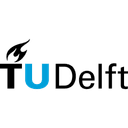This course is part of Industrial Biotechnology and Industrial Fermentation.
Master the fundamentals of industrial biotechnology with this comprehensive course from DelftX. Explore the design of sustainable bioprocesses that convert renewable feedstocks into valuable products. Learn about fermentation technology, downstream processing, and zero-emission process design. The course covers critical aspects from microbial processes to sustainability assessment, incorporating real-world applications and industry perspectives. Through hands-on calculations and process design exercises, you'll gain practical skills in bioprocess engineering while understanding the broader context of the biobased economy.
4.7
(10 ratings)
20,840 already enrolled
Instructors:
English
English
What you'll learn
Understand sustainable innovation and biotechnology's role in biobased production
Master basic bioprocess engineering calculations and principles
Design efficient and sustainable bioprocesses from feedstock to product
Analyze environmental impacts using life cycle assessment methods
Evaluate process economics and social sustainability aspects
Develop integrated zero-emission bioprocess designs
Skills you'll gain
This course includes:
PreRecorded video
Graded assignments, Exams
Access on Mobile, Tablet, Desktop
Limited Access access
Shareable certificate
Closed caption
Get a Completion Certificate
Share your certificate with prospective employers and your professional network on LinkedIn.
Created by
Provided by

Top companies offer this course to their employees
Top companies provide this course to enhance their employees' skills, ensuring they excel in handling complex projects and drive organizational success.





There are 6 modules in this course
This comprehensive course explores industrial biotechnology's role in creating sustainable biobased products. Students learn about fermentation technology, downstream processing, and zero-emission bioprocess design. The curriculum covers everything from basic microbial processes to advanced sustainability assessments, incorporating real-world applications and industry perspectives. Through practical exercises in process design and engineering calculations, participants develop skills essential for the biobased economy. The course emphasizes sustainable innovation and includes insights from industry experts and academic leaders.
Biotechnology for Biobased Products
Module 1 · 8 Hours to complete
Fermentation Essentials
Module 2 · 8 Hours to complete
Downstream Processing Principles and Design
Module 3 · 8 Hours to complete
Integral Zero-emission Bioprocess Design
Module 4 · 8 Hours to complete
Process Design and Sustainability Assessment
Module 5 · 8 Hours to complete
Wrap-up
Module 6 · 8 Hours to complete
Fee Structure
Individual course purchase is not available - to enroll in this course with a certificate, you need to purchase the complete Professional Certificate Course. For enrollment and detailed fee structure, visit the following: Industrial Biotechnology and Industrial Fermentation
Instructors

4 Courses
Sustainable Bioprocess Engineering and Innovation Leader
Henk Noorman currently serves as Head of Sustainability Science & Research at dsm-firmenich, while holding positions as Honorary Professor of Bioprocess Design and Integration at TU Delft and Scientific Director of AI4b.io. His career spans over three decades of expertise in bioprocess technology and sustainable engineering, beginning with his Chemical Engineering degree from Groningen University and PhD in Biotechnology from TU Delft. After coordinating a Nordic research consortium on fermentation scale-up, he joined Gist-brocades and DSM in 1994, where he progressed through various senior scientific roles, including Senior Science Fellow Bioprocess Technology and Corporate Science Fellow Engineering Sciences. His work focuses on advancing open innovation in industrial processes using renewable fuels, particularly in fermentation development, antibiotics production, and biobased chemicals. Through his dual roles in industry and academia, he bridges theoretical research with practical applications, contributing significantly to the bio-based economy. His expertise spans bioprocess design, scale-up optimization, and sustainable biosystems engineering, with extensive experience in managing innovation projects and coordinating private-public partnerships. His research impact is evidenced by over 2,700 citations to his work, establishing him as a leading figure in industrial biotechnology and sustainable bioprocessing.

4 Courses
Sustainability and Bioeconomy Innovation Leader
John Posada Duque serves as Tenured Assistant Professor of Integral Sustainability Analysis at TU Delft's Department of Biotechnology, where he leads groundbreaking research in sustainable bioeconomy development. After earning his PhD cum laude in chemical process design from the National University of Colombia, he gained valuable experience through postdoctoral research at Utrecht University's Copernicus Institute of Sustainable Development, focusing on environmental assessment of biobased products and sustainable biorefinery design. As part of the Biotechnology and Society section, he leads initiatives in Integral Sustainability for the Biobased Economy, combining engineering practices with social sciences to develop comprehensive solutions. His research portfolio spans process design, techno-economic evaluation, environmental impact assessment, and social impact analysis, with particular emphasis on integrated quantitative sustainability assessment and multi-criteria analysis for bio-based products. Through his work, which has garnered over 2,400 citations, he continues to advance the development of long-term sustainable solutions within the bioeconomy, bridging the gap between technical innovation and societal implementation while fostering the transition toward more sustainable bio-based processes and products.
Testimonials
Testimonials and success stories are a testament to the quality of this program and its impact on your career and learning journey. Be the first to help others make an informed decision by sharing your review of the course.
Frequently asked questions
Below are some of the most commonly asked questions about this course. We aim to provide clear and concise answers to help you better understand the course content, structure, and any other relevant information. If you have any additional questions or if your question is not listed here, please don't hesitate to reach out to our support team for further assistance.



